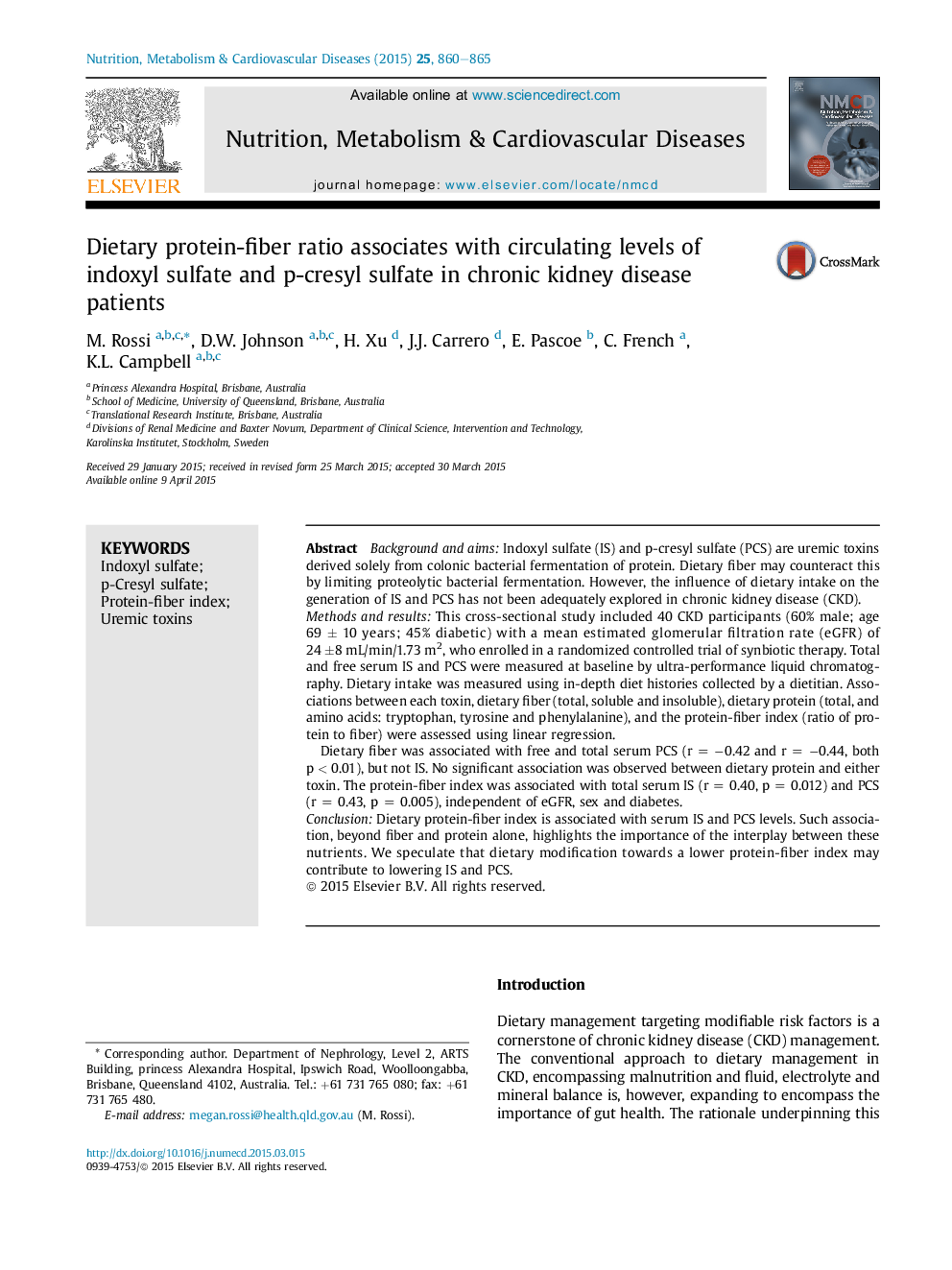| Article ID | Journal | Published Year | Pages | File Type |
|---|---|---|---|---|
| 5996481 | Nutrition, Metabolism and Cardiovascular Diseases | 2015 | 6 Pages |
â¢The ratio of dietary protein and fiber is linked with two nephrovascular toxins, IS and PCS, in CKD.â¢The association, beyond fiber and protein alone, highlights the interplay between these nutrients.â¢Dietary modification towards a lower protein-fiber index may lower cardiovascular risk in CKD.
Background and aimsIndoxyl sulfate (IS) and p-cresyl sulfate (PCS) are uremic toxins derived solely from colonic bacterial fermentation of protein. Dietary fiber may counteract this by limiting proteolytic bacterial fermentation. However, the influence of dietary intake on the generation of IS and PCS has not been adequately explored in chronic kidney disease (CKD).Methods and resultsThis cross-sectional study included 40 CKD participants (60% male; age 69 ± 10 years; 45% diabetic) with a mean estimated glomerular filtration rate (eGFR) of 24 ±8 mL/min/1.73 m2, who enrolled in a randomized controlled trial of synbiotic therapy. Total and free serum IS and PCS were measured at baseline by ultra-performance liquid chromatography. Dietary intake was measured using in-depth diet histories collected by a dietitian. Associations between each toxin, dietary fiber (total, soluble and insoluble), dietary protein (total, and amino acids: tryptophan, tyrosine and phenylalanine), and the protein-fiber index (ratio of protein to fiber) were assessed using linear regression.Dietary fiber was associated with free and total serum PCS (r = â0.42 and r = â0.44, both p < 0.01), but not IS. No significant association was observed between dietary protein and either toxin. The protein-fiber index was associated with total serum IS (r = 0.40, p = 0.012) and PCS (r = 0.43, p = 0.005), independent of eGFR, sex and diabetes.ConclusionDietary protein-fiber index is associated with serum IS and PCS levels. Such association, beyond fiber and protein alone, highlights the importance of the interplay between these nutrients. We speculate that dietary modification towards a lower protein-fiber index may contribute to lowering IS and PCS.
